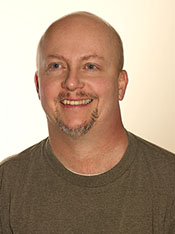
Keynote Speaker: Dean C. Hines, Scientist, Space Telescope Science Institute, and Adjunct Associate Professor, University of New Mexico
Dr. Dean C. Hines uses instruments aboard space telescopes to investigate active galaxies, quasars, stellar evolution, and the formation and evolution of planetary systems, including our solar system. He studied physics and astrophysics at the New Mexico Institute of Mining and Technology where he received bachelor’s and master’s degrees, and then went on to obtain a doctorate in astronomy from the University of Texas at Austin. Dean was a post-doc at the University of Arizona and worked on the Near Infrared Camera and Multi-Object Spectrometer, which was installed on the Hubble Space Telescope in 1997. Subsequently, he was appointed to the research faculty at Arizona where he worked on the Multiband Imaging Photometer for Spitzer, which was an instrument aboard the Spitzer Space Telescope launched in 2003. Dean is currently a scientist at the Space Telescope Science Institute where he is the team lead for the Mid-Infrared Instrument, which will be launched aboard the James Webb Space Telescope in 2018. In addition, Dean is an Adjunct Associate Professor at the University of New Mexico and a Senior Research Scientist with the Space Science Institute. He is a member of the American Astronomical Society and has co-authored more than 400 scientific contributions, with more than 140 appearing in peer-reviewed journals.
His father worked on earth resource satellites and systems for the Apollo program. At just six months old, Dean watched the Faith-7 Mercury launch and didn’t miss a subsequent televised launch until well into the space shuttle program. In fourth grade A Wrinkle in Time inspired him to become an astrophysicist. He has mild cerebral palsy, therefore, being an astronaut was not possible, but working in astronomy and astrophysics has been his ticket to the stars.
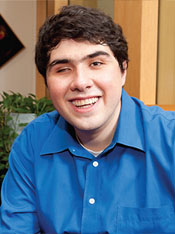
Panel Moderator: Sina Bahram, Accessibility Researcher and Consultant
Sina Bahram is an accessibility researcher and consultant pursuing his PhD in the Department of Computer Science at North Carolina State University. His field of research is Human Computer Interaction (HCI) with a focus on the use of multi-modal approaches to facilitate eyes-free exploration of highly graphical information. Combining artificial intelligence, intelligent user interfaces (IUI), and HCI, Sina devises innovative and user-centered solutions to difficult real-world problems. In 2012, Sina was recognized as one of President Barack Obama’s Champions of Change for his work in enabling users with disabilities to succeed in Science, Technology, Engineering, and Math (STEM) fields. You can read more about Sina and his interests on his website SinaBahram.com and blog.SinaBahram.com. He is @SinaBahram on Twitter.
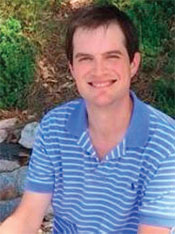
Panelist: David Hamrick, Meteorologist, National Weather Service
David Hamrick is a meteorologist with the National Weather Service in Washington, DC. He is responsible for issuing various types of weather forecasts for the continental US as part of the Weather Prediction Center. David conducts research on weather events and presents on these topics. He is also a frequent presenter on autism-related issues at national conferences and workshops. David has served on the Board of Directors for the Autism Program of Virginia and is a past Vice President of a local autism chapter. He has been featured in Glamour magazine, Good Morning America, Autism Spectrum Quarterly and National Public Radio. David received his bachelor’s and master’s degrees in meteorology from North Carolina State University.
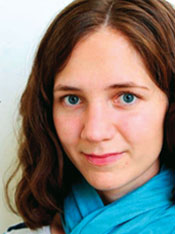
Panelist: Sarah Pruteanu-Malinici, Research Technician, Dana-Farber Cancer Institute
Sarah Pruteanu-Malinici is a research technician at the Dana-Farber Cancer Institute in Boston, where she studies immunology and is involved in several interesting experiments. Sarah mainly works with cell lines and mice. She finds the study of the immune system fascinating, especially the role of the immune system in diseases like autoimmune or immunodeficiency disorders. Some day she hopes to return to school to become a nurse, a profession she is drawn to because of her personal experiences living with a chronic illness. Sarah received her bachelor’s degree in biology and psychology from the University of North Carolina at Chapel Hill.
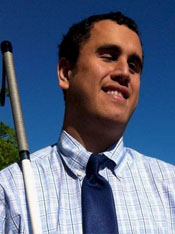
Panelist: Cary Supalo, Research Scientist and Founder, Independence Science
Cary Supalo is a research scientist and founder of Independence Science, a small assistive technology and accessibility consulting firm based in the Purdue Research Park in West Lafayette, Indiana. His mission is to alter the societal paradigm of STEM education for students with disabilities by promoting hands-on science learning for all. His firm collaborates with partners to develop the next generation of talking and audible science laboratory tools, which promote multisensory hands-on learning experiences for students with print disabilities. Prior to starting his firm, Cary was a post-doctoral fellow at Purdue University. He still works with Dr. George Bodner at Purdue, learning more advanced techniques for conducting chemical education research. In 2014, he was the recipient of the American Foundation for the Blind’s Access Award.
Cary serves as chair of the chemistry subcommittee of the Braille Authority of North America and on the chemists with disabilities committee for the American Chemical Society. He has also held a number of leadership positions with the National Federation of the Blind. He has a bachelor’s degree in chemistry and in communications, a master’s degree in inorganic chemistry and a PhD in chemistry.
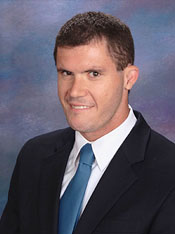
Panelist: Ben Thompson, Medical Student, University of North Carolina at Chapel Hill
Ben Thompson is a medical student at the University of North Carolina at Chapel Hill, focusing on family and palliative medicine. He hopes to improve the health and wellness of his community as a general practitioner, and is also interested in increasing the awareness of end-of-life medicine. He is a student leader for the North Carolina Medical Society. Prior to medical school, Ben was a research assistant. He studied biology and Italian at UNC-Chapel Hill, graduating with highest honors.
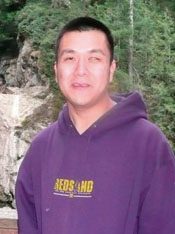
Panelist: David Tseng, Software Engineer, Google
David Tseng is a Google software engineer, working to advance the frontiers of accessibility through contributions to mainstream platforms. He works on assistive technology, including the initial version of VoiceOver at Apple, and Chrome at Google. David has also worked for Microsoft and World Access for the Blind. He has a bachelor’s degree in applied mathematics and computer science from University of California, Berkeley.

